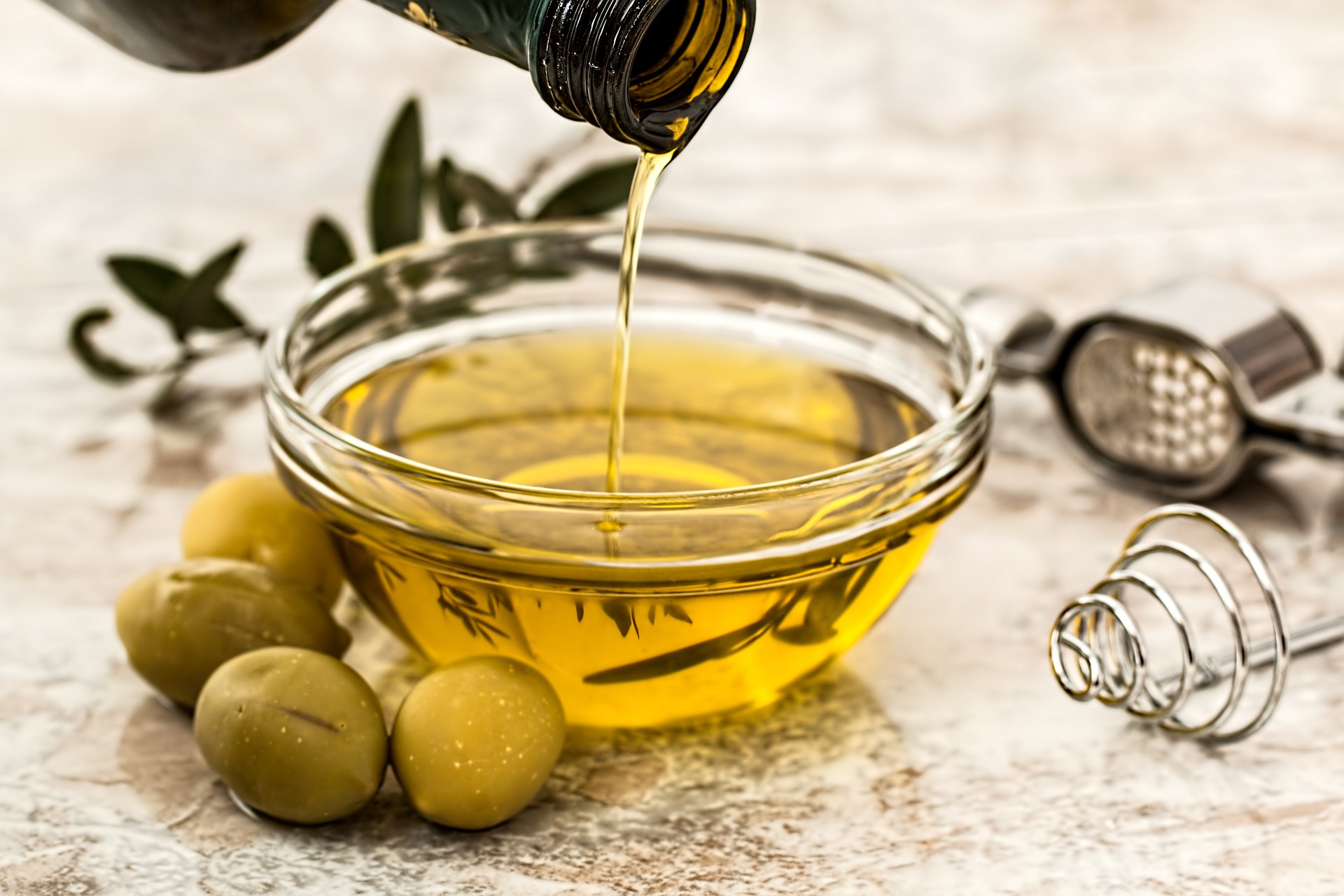REFINED OIL
With this third and final issue, we come to the end of this series of entries on the great plagues of modern food, as Martine Catani puts it in her book “Nutrirse y vivir”.
OIL FACTS
Oils and fats in general are sensitive to heat and prone to oxidation, the moreso the more insaturated.
- Beyond 70°C the active unsaturated fatty acids in their cis form, change their position in space and turn into their trans form which is biologically inactive.
- At higher temperatures (beyond 100°C), all oils (saturated and unsaturated) undergo changes (polymerizations), resulting in compounds that are difficult to digest and affect hepatic-biliary function.
- There is a critical temperature (smoke point) for each oil beyond which it decomposes producing toxic substances, including acrolein, which is carcinogenic.
- Fats and oils get rancid in contact with the air, especially the unsaturated ones, producing free radicals, extremely reactive substances that take part in degenerative processes. Rancidity is boosted by light and heat. Vitamin E prevents oxidation. So, the more stable oil (olive oil), is the one that most vitamin E contains in proportion to its unsaturated fatty acids.
OIL HOT EXTRACTION
To make the extraction of an oil profitable, high temperatures and organic solvents are used (e.g. hexane). The oil is hot extracted at a temperature of 160-200°C through chemical solvents (trichlorethylene, carbon sulphide or cyclohexane). The problem lies in the fact that the oils obtained by this procedure have a bad smell, they are coloured, acidic and have substances that are unsuitable for consumption (waxes, mucilages, etc). That is why a refining process is necessary: it is degummed with phosphoric acid, neutralized with soda, deodorized for three hours at 180°C, decoloured with chlorine dioxide and re-coloured with carminic acid or arcein.
Any rests of seeds are then removed by using sulfuric acid, then it is neutralized with caustic soda, then enriched with various antioxidants such as butyldroxylanisole, since the natural anti-enhancer (vitamin E) has been destroyed by the heat.
This denatured oil increases cholesterol and prevents the assimilation of calcium due to the formation of insoluble calcareous soaps. Vitamin F (essential fatty acids Omega 3 and Omega 6), although still present, is no longer biologically active since the heat has transformed the unsaturated fatty acid molecule into a saturated one: from its physiological cis-cis configuration to its cis-trans configuration, which is toxic.
In addition, in many of these refined oils, hydrogenation processes similar to those used in making margarine are also carried out and are intended to modify the melting temperature of the fats in them so that the oil has a more dense or even solid appearance at room temperature, an effect many consumers mistakenly associate with healthy olive oil.
The final product is very “pure” and long lasting, resistant to light, air, plastic bottles and cheap, it is the so-called “refined oil”.
THE ALTERNATIVE: COLD-PRESSED EXTRA VIRGIN OILS
Most seed and olive oils sold in supermarkets are refined. However, we can find good quality olive oils: virgin olive oil. Virgin olive oil is an olive juice extracted by pressing at temperatures lower than 70°C. The lower the extraction temperature, the better its quality (the higher Omega 6 and vitamin E content) and the more expensive the oil – they are the so-called first cold-pressed oils. Traditionally, this has been the process of extracting the liquid from the seeds and fruits to obtain the oil, by rudimentary procedures before the beginning of the industrial era.
TO CONCLUDE
We cannot finish this post without looking back again and recap what those great “plagues” of modern nutrition are.
- White sugar,
- White bread y
- Oil hot extraction
Growing food marketing has altered traditional family customs in a market with a large assortment of products, from any country and from any season. “Snacks”, “treats”, processed and unprocessed foods (frozen, canned, etc.) have proliferated.
Nutrition patterns in developed countries have changed, moving away from natural, seasonal foods which were eaten in correct proportions and according to physical activity, climate, environment, sex, age… and cooked at home.
- Lack of seasonal fruits and vegetables.
- Non-organic agriculture.
- Excessive consumption of animal products.
- Consumption of non-freshly ground flour.
- Lower consumption of whole-wheat bread.
- Lower consumption of pulses.
So, let us take responsibility for our health again, making conscious and coherent choices, in order to promote a healhty and peaceful world.
Source: Natural Dietetics Notes – Philipus Thuban
“El equilibrio a través de la alimentación” – Olga Cuevas.







